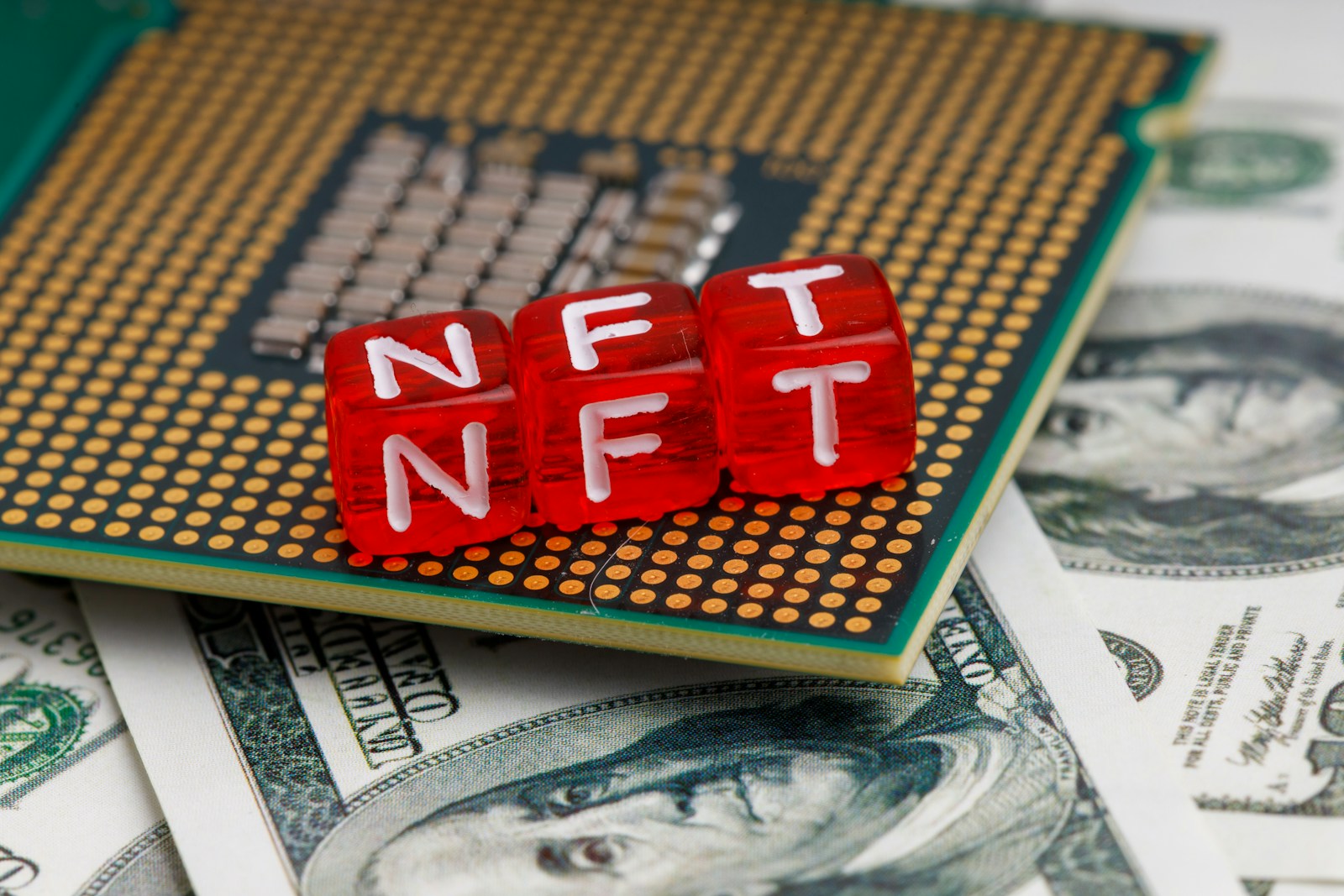Non-Fungible Tokens (NFTs) have ushered in a new era of digital ownership and innovation across various industries.
From art to real estate, gaming to fashion, the applications of NFTs are diverse and continually evolving. One of the key strengths of NFTs lies in their ability to authenticate and establish ownership in the digital realm, paving the way for new business models and revenue streams.
In the realm of digital collectibles and memorabilia, NFTs have provided a secure and transparent platform for buying, selling, and trading unique digital assets. This has opened up new opportunities for creators and collectors alike, allowing for the monetization of digital art, music, and other forms of creative content. Additionally, NFTs have the potential to revolutionize supply chain management by enabling the tracking and verification of unique goods and assets along the entire supply chain, ensuring authenticity and reducing the risk of fraud.
The Impact of NFTs on the Gaming Industry
Non-Fungible Tokens (NFTs) are making significant waves in the gaming industry, offering a new dimension of ownership and interoperability within virtual worlds. By enabling players to truly own digital assets within games, NFTs are revolutionizing the concept of in-game items and allowing gamers to trade, sell, and collect valuable virtual goods like never before. This shift towards player ownership has the potential to transform how games are developed and monetized, providing a more transparent and secure ecosystem for both developers and players.
Moreover, the integration of NFTs in gaming opens up vast opportunities for creating unique and exclusive gaming experiences, where players can engage with personalized content and unlock special rewards through tokenized assets. This novel approach not only enhances player engagement and retention but also fosters a sense of community and creativity within gaming environments. As more game developers explore the possibilities of NFTs, we can expect to see a paradigm shift in how games are designed, consumed, and valued in the increasingly digital landscape of the gaming industry.
Revolutionizing the Real Estate Market with NFTs
Non-Fungible Tokens (NFTs) have emerged as a groundbreaking technology with the potential to revolutionize various industries, including real estate. The application of NFTs in the real estate market enables the tokenization of property deeds, allowing for fractional ownership and streamlined transfer of property rights. This innovative approach offers investors the opportunity to diversify their real estate portfolios by acquiring fractions of high-value properties that were previously inaccessible.
Moreover, NFTs can enhance transparency and security in real estate transactions by providing irrefutable proof of ownership and authenticating property records on the blockchain. This not only reduces the risk of fraud but also simplifies the process of buying, selling, and transferring real estate assets. By leveraging NFTs, the real estate market can potentially attract a new wave of investors, drive liquidity, and transform the traditional dynamics of property ownership.
NFTs in Fashion: Redefining Ownership and Authenticity
Non-fungible tokens (NFTs) have taken the fashion industry by storm, offering a unique way to redefine ownership and authenticity. Through NFTs, fashion brands and designers can create digital assets that represent a specific piece of clothing or accessory, allowing consumers to assert ownership over virtual representations of their favorite items. This innovative approach not only adds a new layer of exclusivity to fashion pieces but also addresses the issue of counterfeit products, safeguarding the authenticity of high-end merchandise.
By leveraging blockchain technology, NFTs provide a transparent and immutable record of ownership, granting individuals the assurance that their digital fashion assets are genuine. As a result, NFTs empower consumers to build a closer connection with the brands they admire, fostering a sense of trust and loyalty in the fashion industry. Furthermore, NFTs enable designers to explore new avenues of creativity by offering limited-edition digital collections that cater to the growing demand for unique and personalized fashion experiences.
Utilizing NFTs for Digital Collectibles and Memorabilia
The rise of non-fungible tokens (NFTs) has introduced a novel way of owning digital collectibles and memorabilia. By utilizing blockchain technology, creators are now able to tokenize their digital assets, providing a secure and immutable record of ownership. This aspect not only enhances the authenticity of the items but also allows for the potential monetization of unique and rare digital pieces.
Moreover, NFTs have revolutionized the way collectors interact with digital memorabilia. The concept of owning a one-of-a-kind digital item, such as artwork, trading cards, or virtual real estate, has opened up new avenues for enthusiasts to showcase and trade their collections in the digital realm. The decentralized nature of NFTs ensures that ownership rights are transparent and traceable, offering a level of security and trust previously unmatched in the digital collectibles market.

Enhancing Supply Chain Management through Non-Fungible Tokens
Non-Fungible Tokens (NFTs) are increasingly being recognized as a valuable technology for enhancing supply chain management in various industries. By utilizing NFTs, companies can create unique digital tokens that represent physical products or assets, allowing for greater transparency and traceability throughout the supply chain. This technology enables stakeholders to track the movement of goods, verify authenticity, and ensure the integrity of products from creation to delivery.
Moreover, NFTs offer a secure and immutable way to store important information and data related to each stage of the supply chain. Through the use of blockchain technology, NFTs provide a decentralized and tamper-proof record of transactions, making it easier for companies to validate the origin, quality, and ownership of products. This level of transparency not only enhances trust among stakeholders but also helps to mitigate risks such as counterfeiting, theft, and fraud in the supply chain ecosystem.
NFTs and Intellectual Property Rights: Ensuring Ownership and Protection
Non-fungible tokens (NFTs) have presented a unique opportunity for creators to establish ownership and protect their intellectual property in the digital realm. By utilizing blockchain technology, NFTs serve as irrefutable proof of authenticity, providing creators with a secure and transparent way to claim ownership over their digital assets. This not only safeguards their intellectual property rights but also opens up new avenues for monetization and establishing a direct connection with their audience.
In a landscape where digital content can easily be replicated and distributed without permission, NFTs offer a solution that ensures creators receive proper recognition and compensation for their work. By minting their creations as NFTs, individuals can establish a verifiable chain of ownership, empowering them to license or sell their creations with confidence. This transformative approach to intellectual property rights has the potential to revolutionize industries ranging from art and music to literature and beyond, fostering a more equitable and creator-centric digital ecosystem.
The Role of NFTs in Ticketing and Event Management
Non-Fungible Tokens (NFTs) have begun to make significant inroads into the realm of ticketing and event management. By tokenizing tickets, event organizers can create a unique digital asset for attendees, ensuring secure entry and reducing the risk of fraudulent activities. This innovation also allows for simplified ticket transferability and resale on blockchain-based platforms, streamlining the secondary ticket market.
Moreover, NFTs offer an avenue for event organizers to enhance fan engagement and interactivity. Through the issuance of limited edition NFT collectibles tied to event attendance or participation, promoters can create a novel way for attendees to commemorate their experiences and establish a sense of exclusivity. This added layer of digital ownership not only amplifies the event’s memorabilia but also opens up new revenue streams through the sale and exchange of these digital tokens.
NFTs as a Tool for Monetizing Content and Creativity
Non-Fungible Tokens (NFTs) serve as a innovative tool for creators to monetize their content and creativity in the digital realm. By tokenizing their work, artists, musicians, writers, and other creatives can establish unique digital assets that can be bought, sold, and traded on various platforms. This process not only provides a new revenue stream for creators but also grants them greater control over the distribution and ownership of their work in the online space.
Moreover, NFTs offer a novel way for content creators to engage with their audiences and fans. Through the sale of exclusive digital artworks, limited edition music releases, or special access tokens, creators can establish direct relationships with their supporters and offer them unique, personalized experiences. This direct connection between creators and consumers can foster a sense of community and loyalty, further enhancing the value of the content being monetized through non-fungible tokens.
The Future of Non-Fungible Tokens in Healthcare and Medicine
Non-fungible tokens (NFTs) are increasingly gaining traction in the healthcare and medicine sector, offering innovative solutions to longstanding challenges. From securely storing medical records on the blockchain to facilitating the traceability of pharmaceuticals in supply chains, NFTs are poised to revolutionize how data and assets are managed within the industry. Moreover, the tokenization of healthcare assets such as medical equipment, research findings, and even rare disease data can streamline processes, enhance transparency, and create new avenues for collaboration and monetization.
In addition to optimizing data management and asset tracking, NFTs hold the potential to transform patient engagement and healthcare accessibility. Through the tokenization of telemedicine services, patient records, and health-related content, individuals can securely access and control their medical information while engaging with innovative healthcare platforms. Furthermore, the use of NFTs in healthcare fundraising initiatives and medical research grants can democratize investment opportunities, incentivize participation, and drive advancements in treatments and technologies.
